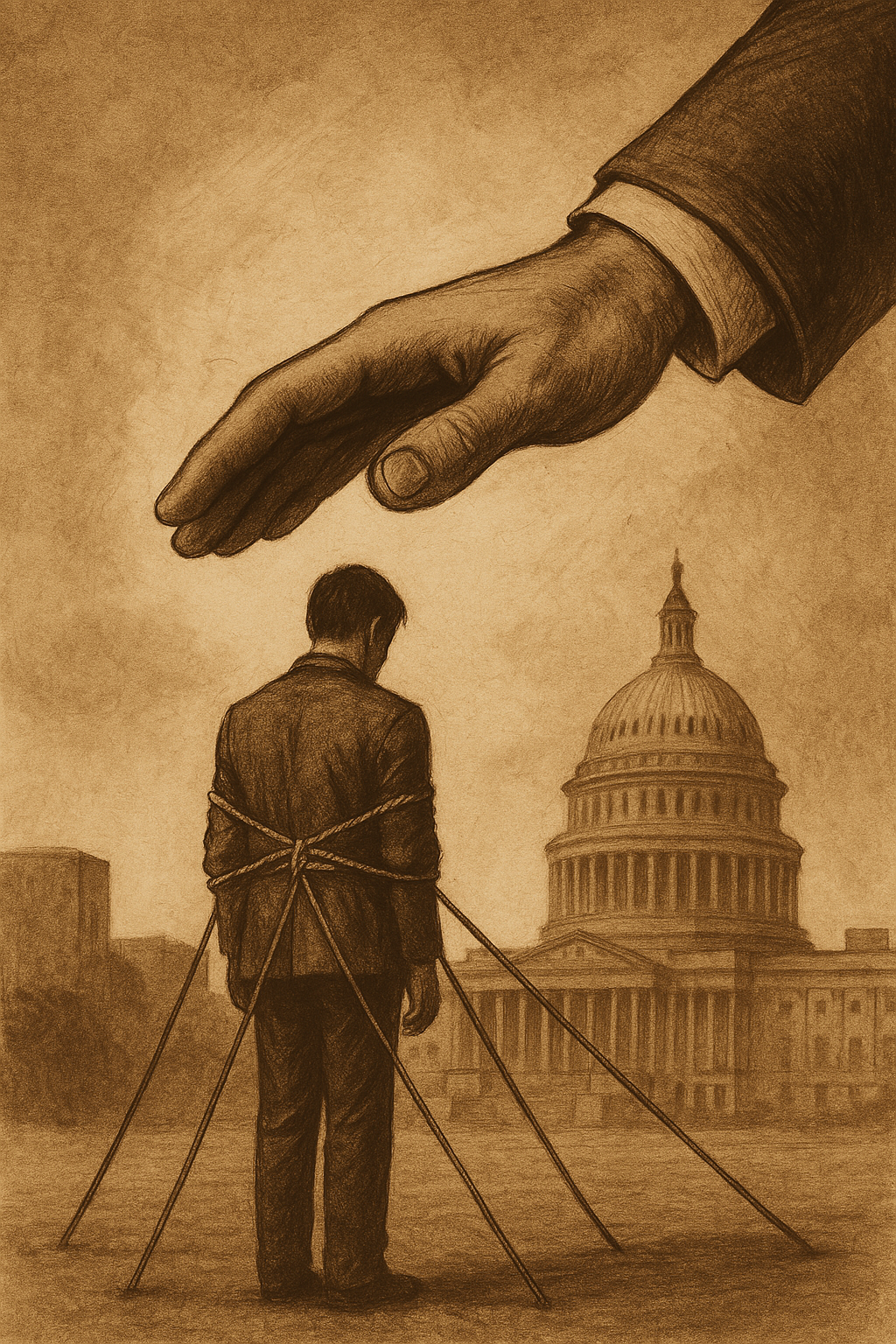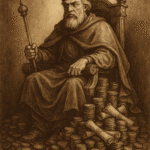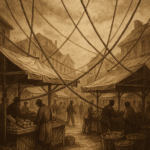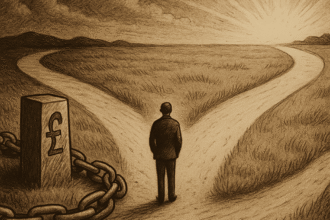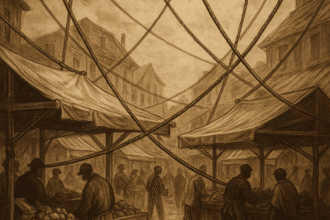The modern State presents itself as the great protector of the citizen.
But behind the promise of security lies the reality of dependence.
In this post, we will analyze how the State used the promise of protection to justify economic interventions that, in practice, increased dependence and reduced individual freedom.
👉 Read also:
- The Origin of the Market: Voluntary Exchange Before the State
- The Birth of the Economic State: From Monarchy to Modern Bureaucracy
The promise of protection as an instrument of control
Throughout the 20th century, the State expanded its functions, claiming to protect citizens against market risks. The so-called “welfare state” was created, with social security, pension and assistance policies.
However, this expansion brought with it:
- Increase in tax burden.
- Growth of state bureaucracy.
- Reduction of individual autonomy.
What was presented as protection became control.
Dependence as a power strategy
By offering benefits and subsidies, the State has created a relationship of dependence with its citizens. This dependence:
- It reduces the incentive for private initiative.
- It makes individuals more susceptible to political manipulation.
- It consolidates the power of bureaucratic elites.
The promise of security served to justify the expansion of state power to the detriment of economic freedom.
The false dichotomy between security and freedom
State discourse often presents a choice between security and freedom, as if they were mutually exclusive. However:
- True security comes from freedom of choice and individual responsibility.
- Dependence on the state creates a false sense of security, which can be taken away at any time by political decisions.
It is necessary to question whether the protection offered by the State really guarantees security or merely serves to consolidate its power.
Conclusion: freedom as true protection
History shows that:
- Societies with greater economic freedom tend to be more prosperous and secure.
- Dependence on the State does not eliminate risks, it merely transfers control into political hands.
True protection lies in freedom of choice, individual responsibility and the limitation of state power.
📩 Do you want to understand how dependence on the State threatens your freedom every day?
Subscribe to the Economic Radar newsletter and receive direct analysis and criticism in your email.
